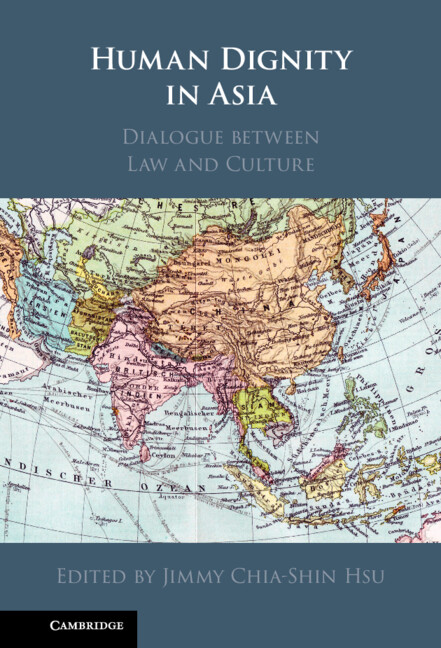
My chapter, “Human Dignity and Catholicism in the Philippines”, was just published in the edited volume Human Dignity in Asia: Dialogue Between Law and Culture, by Jimmy Chia-Shin Hsu (Cambridge University Press). It is also available in electronic format through Cambridge Core.
For a limited time, you can purchase the book at a discount from Cambridge University Press using the coupon code “HSU2022” (without the quotation marks).
The concept of human dignity differs from that of human rights in important ways. The notion of human dignity precedes that of human rights and recalls the famous observation of Jacques Maritain, one of the key drafters of the Universal Declaration of Human Rights, that “we agree on these rights, providing we are not asked why. With the ‘why,’ the dispute begins.” The concept of human dignity implies an answer to the “why” of human rights, but that answer varies across different cultures.
How is human dignity understood in Asian societies? The chapters in this volume systematically survey Asian approaches to human dignity through philosophical, legal, religious, and socio-political analyses. Chapters cover India, Japan, China, South Korea, the Philippines, Indonesia, Hong Kong, Taiwan, and Singapore.
My own contribution examines the Catholic Church’s understanding of human dignity and how the Catholic hierarchy has sought to apply it in the Philippines. I focus on several issue areas, including capital punishment, contraception, poverty, and electoral fraud. Catholic doctrine teaches that all people possess intrinsic dignity because they have been created in the image of God (the imago Dei), thereby imposing certain moral principles regarding the treatment of oneself and others, including solidarity, the preferential option for the poor, and the sanctity of human life. The Church’s application of these teachings in the Philippines has taken on distinct local characteristics shaped by high levels of societal poverty, economic inequality, and corruption, as well as the Church’s historically strong political influence. The Catholic bishops have harnessed the concept of human dignity to point out dehumanizing practices in Philippine society and call for greater respect for the sanctity of human life. In recent decades, though, the Church’s moral authority in the Philippines has been severely challenged by changing political dynamics, revealing the limits of its ability to promote Catholic teachings on human dignity.
